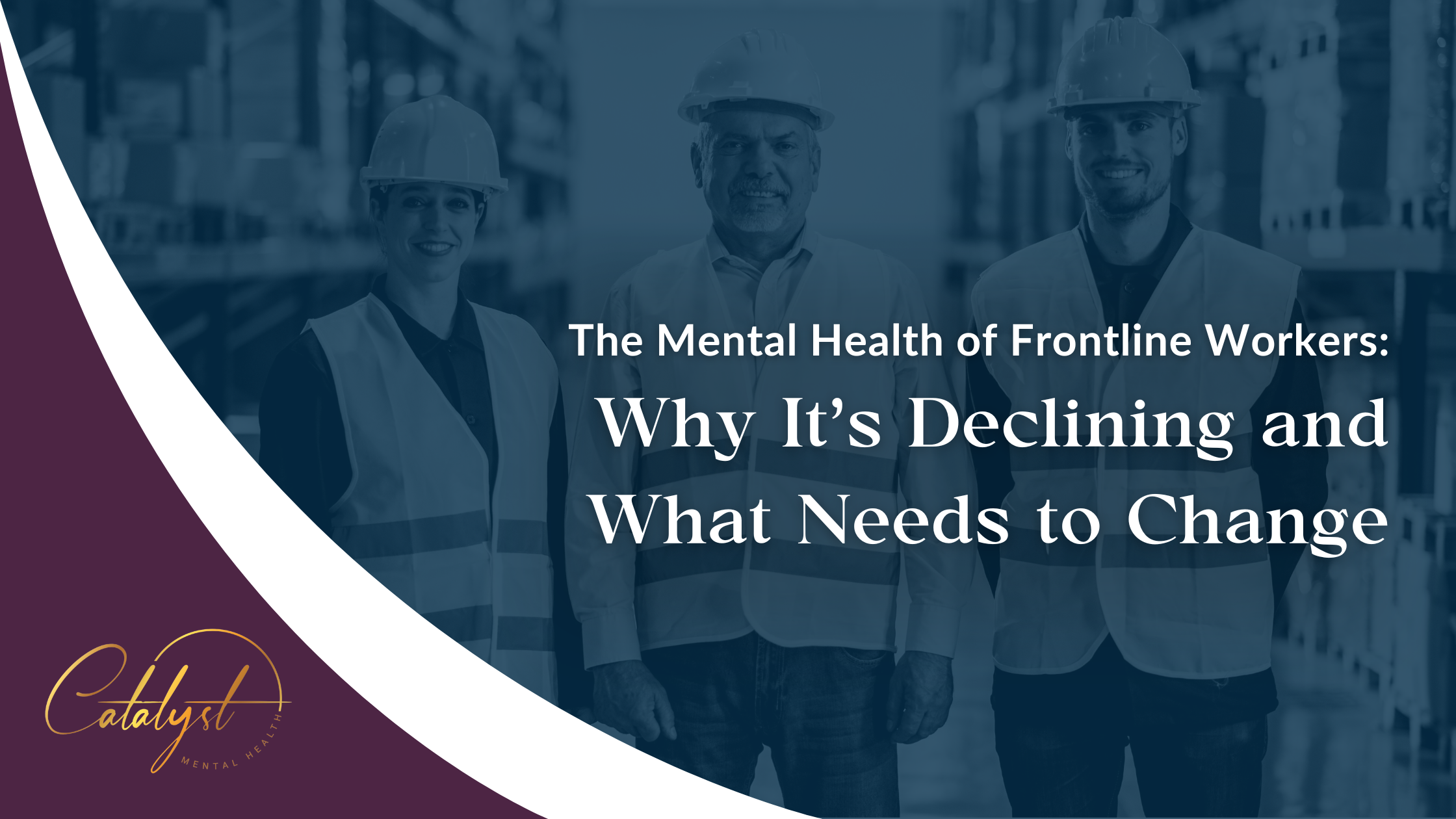
Frontline workers are essential to the businesses and organizations they work for. They’re the direct link between their employers and the general public, making them an integral part of keeping customers satisfied, maintaining a positive image, and achieving operational efficiency. Without them, it becomes nearly impossible to keep everything running smoothly.
But are they receiving the respect and acknowledgement they deserve? Are organizations providing the level of support needed? And, most importantly, is enough being done to protect the mental health of frontline workers?
According to a recent study, the answer to these questions is a resounding “no”—indicating the need for real, immediate, and meaningful change.
Keep reading to explore who frontline employees are, the unique challenges they face, and why they need to be considered when addressing mental health in the workplace.
Who are Frontline Workers?
A frontline worker is anyone—no matter their background or field—who directly interacts with customers, clients, or those receiving services. They’re the face of their organization, representing the brand with every interaction. They play a key role in keeping communities and economies thriving by doing work that’s essential and deeply valued.
Are Frontline Workers Facing a Mental Health Crisis?
Yes, according to a recent study by meQuilibrium (meQ), frontline employees are 33% more likely to experience anxiety and 61% more likely to experience depression than non-frontline staff.
Other key findings from the study include:
- Frontline workers are 30% less likely to seek out professional assistance when dealing with high levels of stress.
- They’re 22% less aware of the benefits their employers offer compared to their non-frontline colleagues.
- Frontline workers battling stress see a remarkable 70% improvement after receiving mental health training.
What Factors Contribute to Frontline Employee Stress and Burnout?
There are many reasons why frontline workers experience higher stress levels, burnout, and turnover rates.
A few of the main concerns include:
1. Longer Working Hours
Shift work, staffing shortages, and last-minute customer or client needs all contribute to frontline employees working longer hours. Unlike managerial or administrative roles, who aren’t expected to be a first point of contact for the company, frontline workers must address unexpected challenges like last-minute customer needs or emergencies, before they’re able to clock out for the day.
2. High Customer Interaction
Frontline workers are in public-facing roles, which makes them more likely to encounter high-stress situations and negativity. Whether it’s having difficult conversations, handling complaints, or managing unrealistic expectations—the emotional toll of these interactions can lead to diminished morale and poor mental health over time.
3. Unpredictable Workloads
The lack of control over their workloads causes many frontline workers to feel unheard, unsupported, and overwhelmed. Their duties can vary drastically from day to day, leading to sudden spikes in their workload, which can be difficult to keep up with. This unpredictability negatively affects job satisfaction and well-being if the proper supports are not in place.
How Employers Can Protect the Mental Health of Frontline Workers
Employers have a responsibility to support the mental health and well-being of their essential workers.
Here are three practical strategies that make a real difference:
1. Recognition Programs
When frontline workers receive acknowledgment for their hard work, it reinforces their sense of value and belonging within the organization. A recognition program could be formal, like hosting a monthly ceremony where awards and gift cards are given out, or they can be more casual, like encouraging managers to write personal thank-you notes when a frontline employee does an exceptional job.
2. Anonymous Feedback Channels
Frontline workers should always have a safe way to express their thoughts and concerns without fear of judgment. Whether it’s a suggestion box, an employee survey, or a focus group with a third-party facilitator—providing your essential workers with the opportunity to voice their concerns is a must for maintaining employee engagement. It allows your team to present issues surrounding workload, stress, or interpersonal dynamics without the fear of repercussion.
3. Corporate Mental Health Training
Proper training is a transformative resource for frontline workers experiencing extreme fatigue and stress. It provides them with the coping skills needed to thrive despite high-pressure moments on the job. Plus, it fosters a supportive workplace culture where employees feel comfortable discussing mental health challenges, reducing feelings of isolation.
And remember, these initiatives don’t just benefit the mental health of frontline workers. They benefit business. Happier, more productive employees contribute to a positive reputation, which boosts sales and growth well into the future.
Be the Change: Invest in Corporate Mental Health Training for Your Frontline Workers
Imagine having a team of resilient essential workers who are fully equipped to thrive under pressure. Now imagine the ripple effects: reduced absenteeism, lower turnover rates, and increased job satisfaction.
At Catalyst Mental Health, we bring this vision to life through transformative training experiences grounded in science and backed by evidence. Your team will leave our sessions inspired and fully equipped with the skills needed to thrive—that’s a promise!
